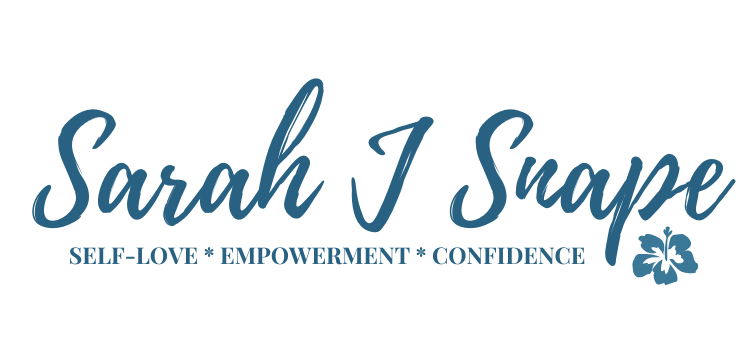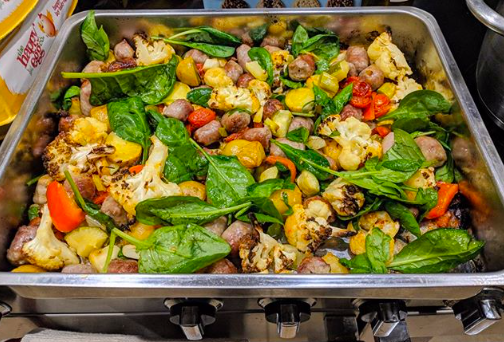Food Restriction or Food Freedom
“Oh, are you being good?” I was asked on turning down dessert when out for dinner. One of my pet peeves – I just didn’t want any – no biggie!
It got me thinking about all the rules that we are bombarded with about what foods we should and shouldn’t eat. Rules I’ve tried to follow before – no fat, low fat, no carb, low carb, don’t eat after a certain time, count calories, can’t eat this, can’t eat that etc. It’s obvious really that none of these restrictive rules really work long term otherwise there would be no diet industry!
Effects of Restriction
All the restriction succeeds in doing is making us want to eat what we have decided we shouldn’t eat. When we eventually “give in” and eat it we then feel like we’ve failed – feel guilty. You end up feeling deprived whereas losing the restriction stops that.
I can eat it if I want to – then it’s an active choice whether to or not. No right or wrong.
These negative feelings can then spill over into the rest of your life and how you feel about yourself. Rather than being about weight loss, it’s about the energy restriction takes :– you are so much more than your body and life is about so much more than what we eat. It’s about gaining freedom -developing an awareness around food that becomes 2nd nature without feeling deprived.
This week I read Fierce Fatty by Victoria Welsby. She uses the analogy of only being allowed to eat chocolate, literally just chocolate. You’re told you should eat chocolate, so you do. You soon start craving other foods but feel bad, so sneak them and then feel guilty.
This is how we feel when we eat foods we have been told we shouldn’t. Summed up neatly in this picture from Rachel Goodman Nutrition.
What’s forbidden is what we want.
Be Your Own Experiment
As I’ve written before,(Leaving a Diet Mindset Behind) over the last few years my attitude to food has really changed.
My use of language around food has altered significantly. I no longer say I can’t eat that, I have to eat this – I don’t talk about being good or bad around food. No food is forbidden or off limits.
I have learnt to eat in a way that satisfies and discovered which foods make me feel good physically, those which give me energy and those that sap it. For example, I know that if I have bread, pasta or a similar carb at lunch I will have a real energy dip around 3-4pm. I’ve had to discover which carbs keep me satisfied but don’t have this effect.
What I’m going to eat and when I’m going to eat it are no longer time zappers. Yes, I still plan and do some prep but that is more for shopping lists and convenience – having teenagers in the house food doesn’t hang around long anyway.
Strategies
One of the strategies I have found to work well for me in terms of nutrition is to adopt 3-5 things that I do every day. I’ve heard these referred to in several ways: daily nutrition commitments (DNC’s), non-negotiables, baseline. However you refer to them they are just actions that you do daily and near enough become automatic. For me my three DNC’s are eating protein at every meal, eating slowly and getting my veggies in – normally through salad at lunch and lots of veggies at dinner. The eating slowly tends to stop me overeating and the protein helps keep me fuller for longer.
They help keep things simple and have become automatic so require little thought.
I’m not saying I never have to think about them and check in – especially the slow eating.
Trust
It’s all about learning to trust yourself around food and to trust your body to tell you what you want. To start with it is about making conscious choices but it soon becomes more intuitive. Choices such as:
Do I want to eat it or are other factors involved?
Just because I don’t eat it now doesn’t mean I never can again
I don’t have to finish it if I’m full
How will I feel if I do/don’t eat it?
Am I truly hungry
I can have a mouthful and save the rest until later – no really – (this took me ages to get my head around)
Even 5 years ago I really felt I was going to be “on” a diet for the rest of my life, felt like I just lacked self-control. We’d go out for dinner and it would be an excuse to eat everything, go on holiday and the same. Now when we go out for dinner I may have a pudding, I may not, on holiday I no longer feel the need to totally over eat to make up for restriction in the weeks leading up to it, I try to eat in the same manner the majority of the time.
Sometimes you do want the chocolate or the cookies and that’s fine – it doesn’t mean you’re bad – enjoy them and then move on. Eating foods I like and that satisfy means more or often or not I don’t get cravings in the same way I used to.
Actions
To summarise these are the key points/actions – focus on changing one thing at a time in a positive way – don’t change too many things at once
Think about what you can add to your meals to make them more satisfying
Think about 3-5 things you could do each day as building blocks for your nutrition. Pick 1 at a time and these should be easy – e.g. 1 of mine was to increase veggies. I already had a salad most lunch times and veggies with dinner, so I just upped the portions.
Don’t make any food or food group forbidden
Think about how certain foods make you feel
Changing my relationship with food has taken time, experimenting and practice. It’s still by no means perfect but it’s certainly more positive than it ever has been.
What I have found amazing is how much of an effect letting go of restriction in this area and thus feelings of failure etc has had a knock-on effect to my confidence in myself in other areas of life.
If any of this resonates please leave a comment or feel free to share.

